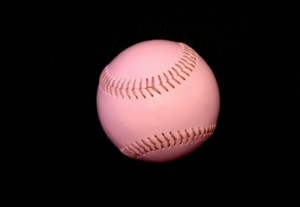The Meaning of LGBT in Sports
Sometimes the Ls, the Gs and the Ts don’t always understand the Bs. And sometimes the the Ls, Gs, and Bs are not always so welcoming of the Ts. But for the sake of the LGBT movement as a whole, it’s about time everyone starts getting on the same page. If anyone expects society to become more open-minded about sexual orientation, acceptance has to start within one’s own community. For a group of bisexual softball players, that acceptance came in the form of a lawsuit.
The North American Gay Amateur Athletic Alliance (NAGAAA) settled with several bisexual players after they were told that they were disqualified from the league because of their sexual orientation. For a gay group to discriminate from within sends a terrible message to the public at large, especially when you consider the potential backlash if the same thing happened to gay players in a so-called “straight” league.
But thanks to the settlement this week, the NAGAAA has had to pay an undisclosed fee to the players and has agreed to welcome an unlimited number of bisexual and transgender players into the league after it was accused of rounding up three players (Steven Apilado, LaRon Charles and Jon Russ) and grilling them about personal, sexual issues – only to determine they were weren’t “gay” enough to play.
The National Center for Lesbian Rights – one of the groups who helped bring about the lawsuit – reports: “The players were called into a conference room, where they were questioned in front of more than 25 people, most of them strangers, about their sexual orientations and private lives. The players were forced to answer whether they were ‘predominantly’ interested in men or women, without being given the option of answering that they were bisexual. In response to a player’s statement that he was attracted to both men and women, a NAGAAA member who was in the room stated, ‘this is not a bisexual world series – this is a gay world series.’ NAGAAA’s protest committee voted that the three plaintiffs were ‘believed to be heterosexual,’ and their team was disqualified from its second-place finish.”
One of the players told the news that he was shocked and disappointed to not be able to play because of his perceived sexual orientation. “When you play softball, you never expect for anyone to corner you and ask you personal questions about who you are and what you do,” Charles told SFGate.com at the time the lawsuit was filed. “It was emotional for me as a coach to go in there and not only get grilled, but watch my team be put in this situation.”
Since the settlement, the players say they are pleased with the outcome and the fact that others will not have to be subject to the same queries about their private lives simply to play a sports game.
Seattle litigation counsel Suzanne Thomas of K&L Gates, the firm handling the suit, says that the case is telling about widespread discrimination in sports. “This case has helped shine a light on the continuing negative effects of pervasive, historic homophobia and discrimination in sports at all levels,” she explains, “and the continued need to combat negative perceptions and stereotypes about LGBT athletes.”
Philadelphia is one of the NAGAAA’s member cities with the City of Brotherly Love Softball League.



